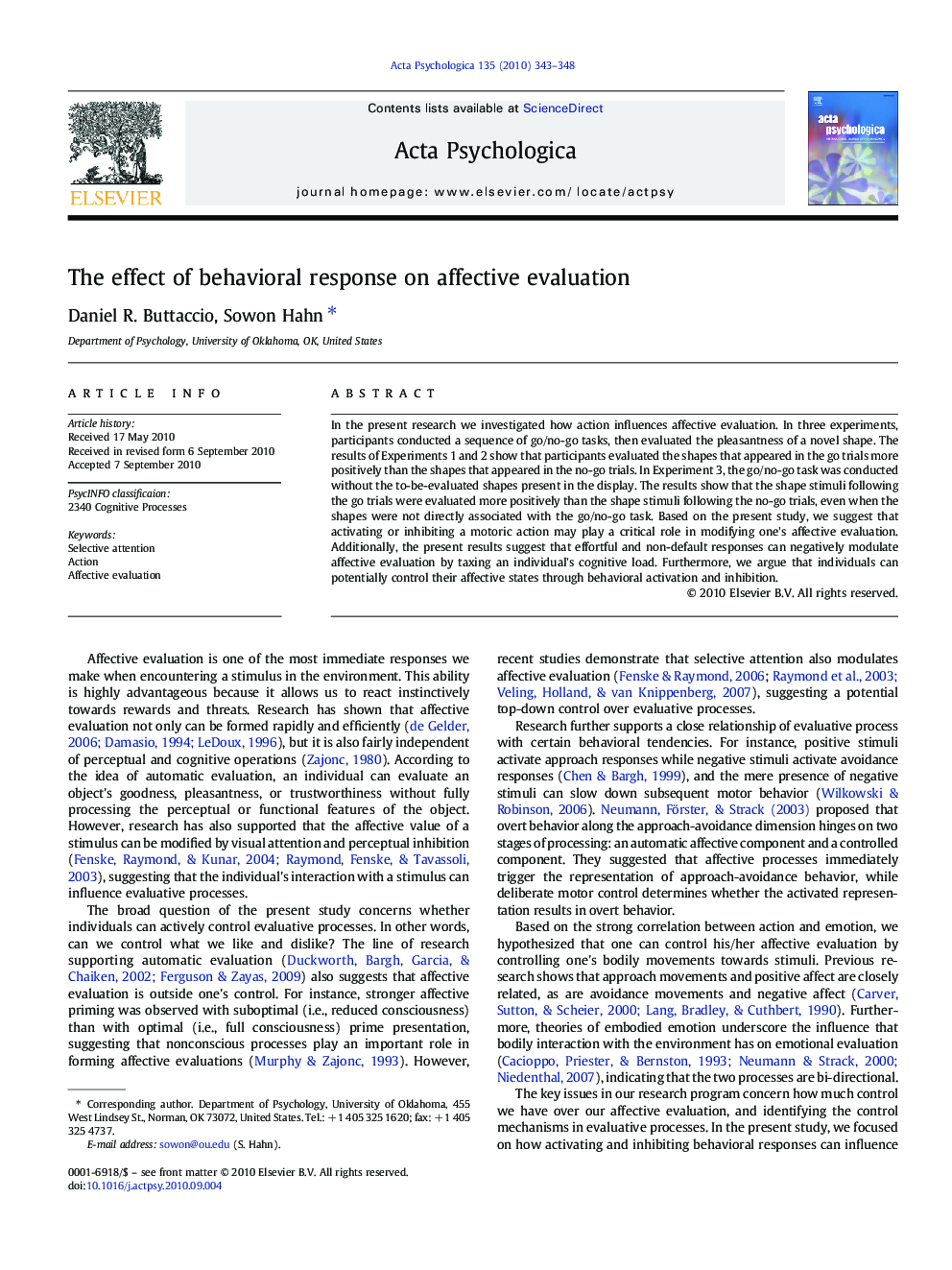| Article ID | Journal | Published Year | Pages | File Type |
|---|---|---|---|---|
| 10453881 | Acta Psychologica | 2010 | 6 Pages |
Abstract
In the present research we investigated how action influences affective evaluation. In three experiments, participants conducted a sequence of go/no-go tasks, then evaluated the pleasantness of a novel shape. The results of Experiments 1 and 2 show that participants evaluated the shapes that appeared in the go trials more positively than the shapes that appeared in the no-go trials. In Experiment 3, the go/no-go task was conducted without the to-be-evaluated shapes present in the display. The results show that the shape stimuli following the go trials were evaluated more positively than the shape stimuli following the no-go trials, even when the shapes were not directly associated with the go/no-go task. Based on the present study, we suggest that activating or inhibiting a motoric action may play a critical role in modifying one's affective evaluation. Additionally, the present results suggest that effortful and non-default responses can negatively modulate affective evaluation by taxing an individual's cognitive load. Furthermore, we argue that individuals can potentially control their affective states through behavioral activation and inhibition.
Related Topics
Life Sciences
Neuroscience
Cognitive Neuroscience
Authors
Daniel R. Buttaccio, Sowon Hahn,
